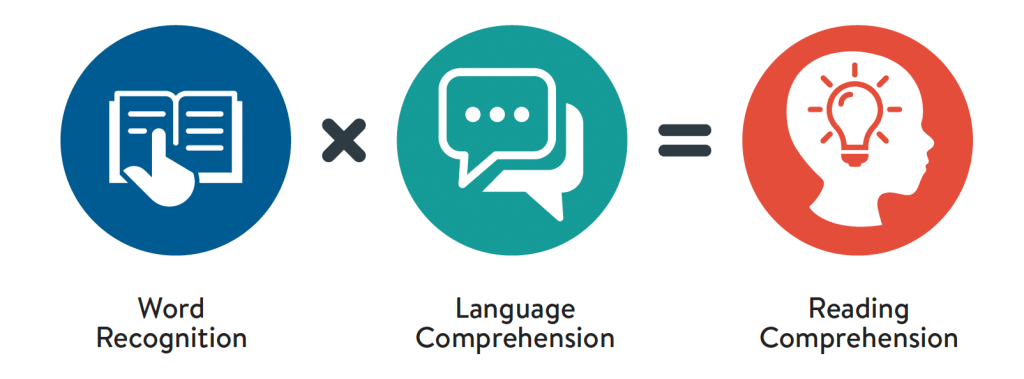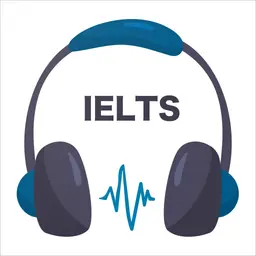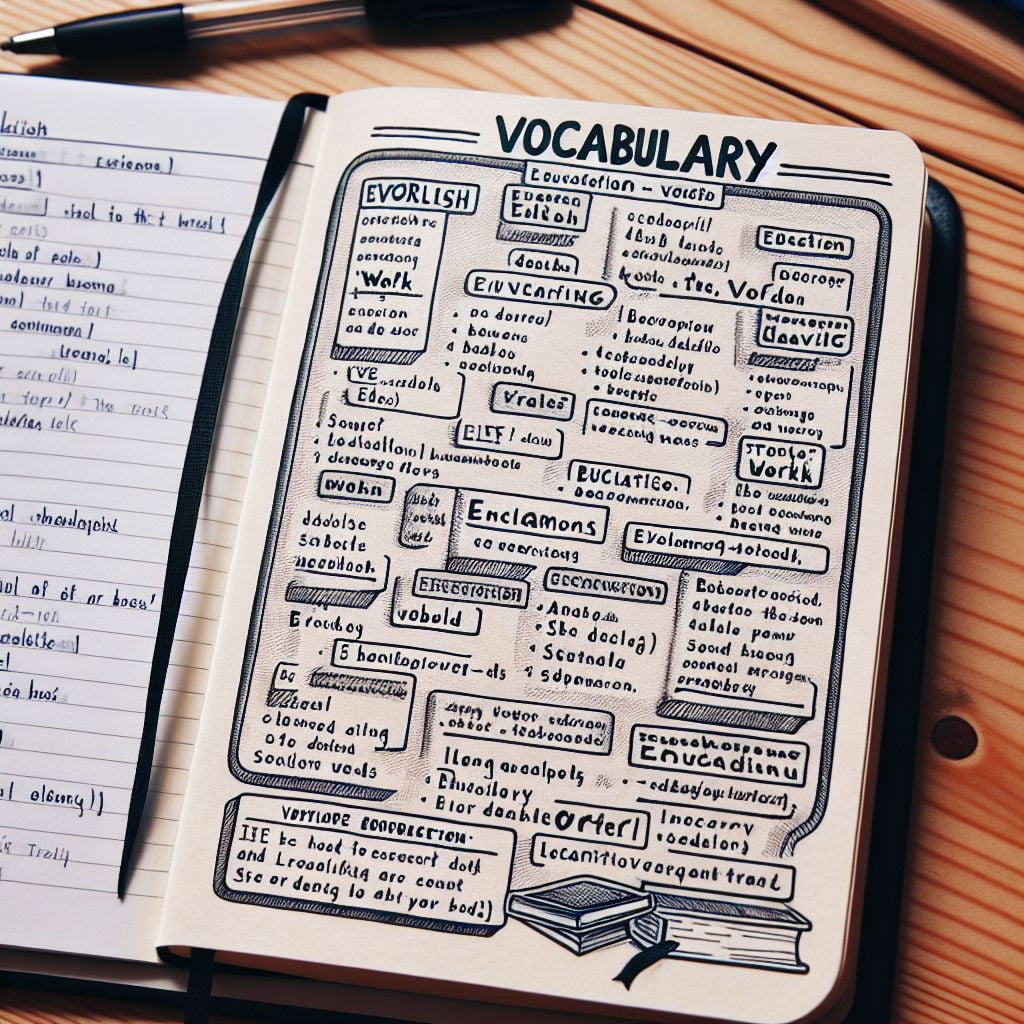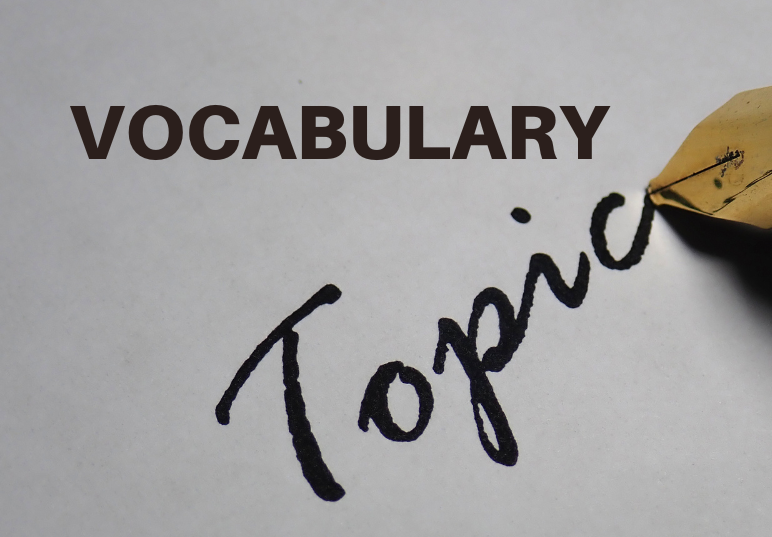IELTS Vocabulary: How to Master Essential Words for a Higher Band Score
IELTS Vocabulary is not just about learning new words, but also includes using them effectively in all four skills of an IELTS test including Listening, Speaking, Reading and Writing. In this article, IELTS Test Pro will help you explore how to master IELTS vocabulary – an important factor to help achieve a higher score in the exam.

1. Why IELTS Vocabulary Matters?
In the IELTS exam, vocabulary plays a crucial role, particularly in the Writing and Speaking sections, but it is not explicitly quantified as a percentage of the overall score. Instead, vocabulary contributes to specific criteria within the four sections:
-
Enhanced Reading Comprehension in IELTS Reading Section
The IELTS Reading section often includes complex texts with advanced vocabulary. If you are familiar with a wide range of words, you will be better equipped to recognize the meaning of words and phrases in various contexts, which is essential for answering questions accurately as well as identify key information such as specific details and main ideas more efficiently, leading to correct responses and higher scores.

-
Improved Listening Skills IELTS Listening Section
In the IELTS Listening section, you are required to follow and understand spoken English. A robust IELTS vocabulary list helps you to recognize words by catching key terms and phrases mentioned in the audio, which are crucial for answering questions correctly. Also, by getting hold of vocabulary words for IELTS, you will be able to understand synonyms and paraphrases used by the speakers. Thus, enhance your ability to follow the conversation and extract information.

-
Effective Writing in IELTS Writing section
In the IELTS Writing section, vocabulary is assessed under the “Lexical Resource” criterion that accounts for 25% of the total score in both Task 1 and Task 2 of the IELTS Writing section. This criterion evaluates:
- Range: The variety of vocabulary used.
- Accuracy: Correct usage of words and phrases.
- Appropriacy: Using vocabulary that fits the context and task.

-
Stronger Speaking Performance in IELTS Speaking section
Likewise, the IELTS Speaking section also evaluates vocabulary under the “Lexical Resource” criterion, which also represents 25% of the total score in the Speaking section. This criterion assesses:
- Range: The ability to use a wide range of vocabulary appropriately.
- Accuracy: Correct pronunciation and grammatical use.
- Flexibility: Using vocabulary effectively to convey precise meanings.

2. Effective Strategies to Expand Your IELTS Vocabulary
Expanding your IELTS words involves more than just memorizing words. Here are some proven strategies to enhance your word bank:
- Use Flashcards: Create flashcards with new IELTS words, their definitions, and example sentences. Review them regularly to reinforce your memory.
- Read Widely: Engage with a variety of texts, including academic articles, newspapers, and books. Exposure to different contexts will help you understand how words are used in various situations.
- Practice Paraphrasing: This skill is crucial for the IELTS Writing and Speaking sections, where paraphrasing is often required. The best way to practice paraphrasing is to understand synonyms and learn how different words can convey the same meaning.
- Focus on Collocations: Collocations are words or word combinations that frequently appear together that make your language sound more natural. There are many sources to access common collocations like the Oxford Collocations Dictionary.
- Learn Vocabulary by Topic: Topic-Based Learning helps you focus on vocabulary relevant to common IELTS themes.
- Apply Mind Mapping to study IELTS Vocabulary: Mind mapping is an effective and versatile technique to expand your IELTS vocabulary. By creating visually organized maps that connect related words, grammar points, and usage notes, you can enhance your understanding and retention of new vocabulary.
- IELTS Practice Tests: Take practice tests to expose yourself to the type of vocabulary used in IELTS questions. Pay attention to IELTS words used in Listening and Reading passages, and note down any unfamiliar words.

3. Must-Know IELTS Vocabulary by Topic
Learning vocabulary in context can be highly beneficial. Here are some key topics and essential vocabulary words to focus on:
- Celebrities
- Entertainment
- Media
- Fashion
- Lifestyle
- Travel
- Movie
- Education
- Invention
- History
- Emotion
- Technology
- Nature
- Money
- Marriage and Family
- Environment
- Work
- Town and City
- Animal
- Crime
- Government and Society
- Health
- Hobby
- Tourism
- Transport

4. How to Use IELTS Vocabulary in Writing and Speaking?
Effectively using IELTS vocabulary in Writing and Speaking requires more than just knowing a lot of words. It’s about understanding how to use them in context, avoiding repetition, and making your language sound natural and fluent. By focusing on synonyms, collocations, topic-specific words, grammatical accuracy, and varied sentence structures, you can significantly enhance your IELTS performance and achieve a higher band score. Here’s how to use your vocabulary to your advantage:
- Avoid Repetition: Use a variety of words and expressions to avoid repetition. This demonstrates a broad vocabulary and enhances the quality of your writing and speaking.
- Utilize Collocations: Incorporate common word pairs and phrases (collocations) into your responses. This makes your language sound more natural and sophisticated.
- Practice Complex Sentences: Construct complex sentences that showcase your ability to use advanced vocabulary and grammar structures.

>>See also: Mastering Grammar for IELTS Success
5. Recommended Books for Building IELTS Vocabulary
Your current IELTS band level can guide you in choosing the most effective resources to build your vocabulary. Here’s a breakdown of recommended resources based on different IELTS band levels:
-
Band 4.0 – 5.0 (Basic User)
Goal: Develop a solid foundation in everyday vocabulary, focusing on learning and using high-frequency words that are common in everyday conversations and simple IELTS topics.
Books:
- English Vocabulary in Use: Elementary by Michael McCarthy and Felicity O’Dell: This book is perfect for beginners, offering exercises that introduce basic vocabulary.
- Check Your English Vocabulary for IELTS by Rawdon Wyatt: Provides exercises to build foundational vocabulary, focusing on word meaning, usage, and simple phrases.
-
Band 5.5 – 6.0 (Modest User)
Goal: Start incorporating topic-specific vocabulary related to common IELTS themes such as education, health, and environment into your practice.
Books:
- English Vocabulary in Use: Pre-intermediate and Intermediate by Michael McCarthy and Felicity O’Dell: This book helps bridge the gap between basic and more advanced vocabulary.
- Collins English for IELTS – Vocabulary by Anneli Williams provides vocabulary exercises related to IELTS topics, suitable for learners aiming to achieve a mid-level band score.
-
Band 6.5 – 7.0 (Competent User)
Goal: Enhance vocabulary with more complex words, synonyms, and topic-specific language. Focus on avoiding repetition and improving the accuracy of word usage.
Books:
- English Vocabulary in Use: Intermediate and Upper-Intermediate by Michael McCarthy and Felicity O’Dell: Ideal for expanding vocabulary with more complex words and phrases.
- Cambridge Vocabulary for IELTS by Pauline Cullen: Focuses on vocabulary necessary for a higher band score, with exercises tailored to IELTS topics.
-
Band 7.5 – 8.0+ (Good to Very Good User)
Goal: Master sophisticated vocabulary, idiomatic expressions, and advanced collocations. Focus on using nuanced language and advanced grammar structures.
Books:
- English Vocabulary in Use: Advanced by MichaelMichael McCarthy and Felicity O’Dell: Offers in-depth coverage of advanced vocabulary, idioms, and expressions.
- Cambridge Vocabulary for IELTS Advanced by Pauline Cullen: Tailored for those aiming for a high band score, this book covers the most challenging vocabulary needed for the exam.

By selecting the right resources based on your level and practice with free online IELTS tests on IELTS Test Pro, you can systematically build the vocabulary needed to excel in the IELTS exam. Regular practice at and targeted learning will help you achieve the fluency and precision required for a high band score.